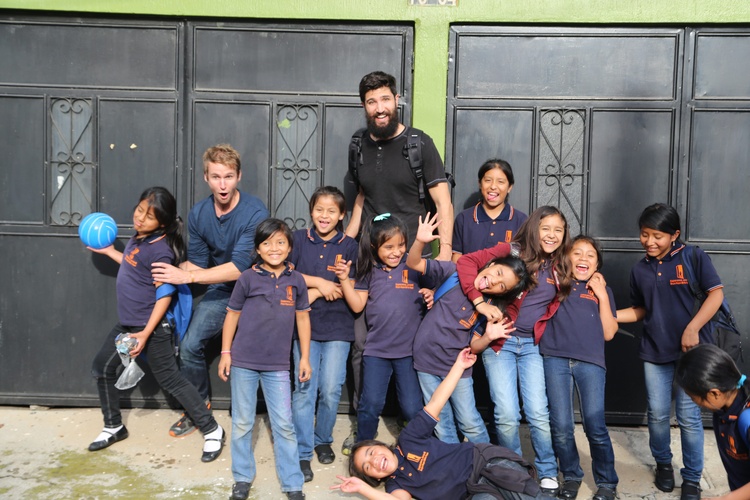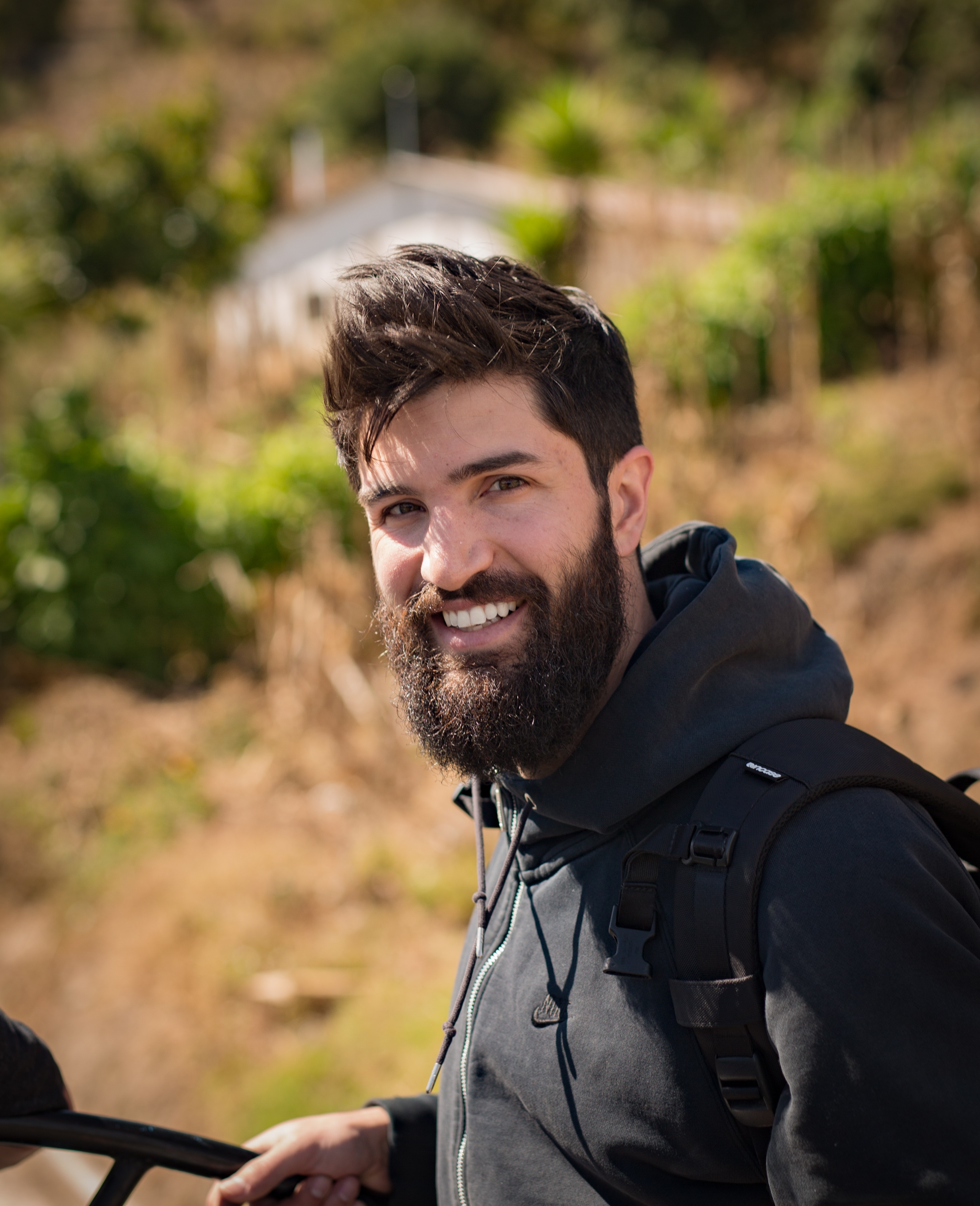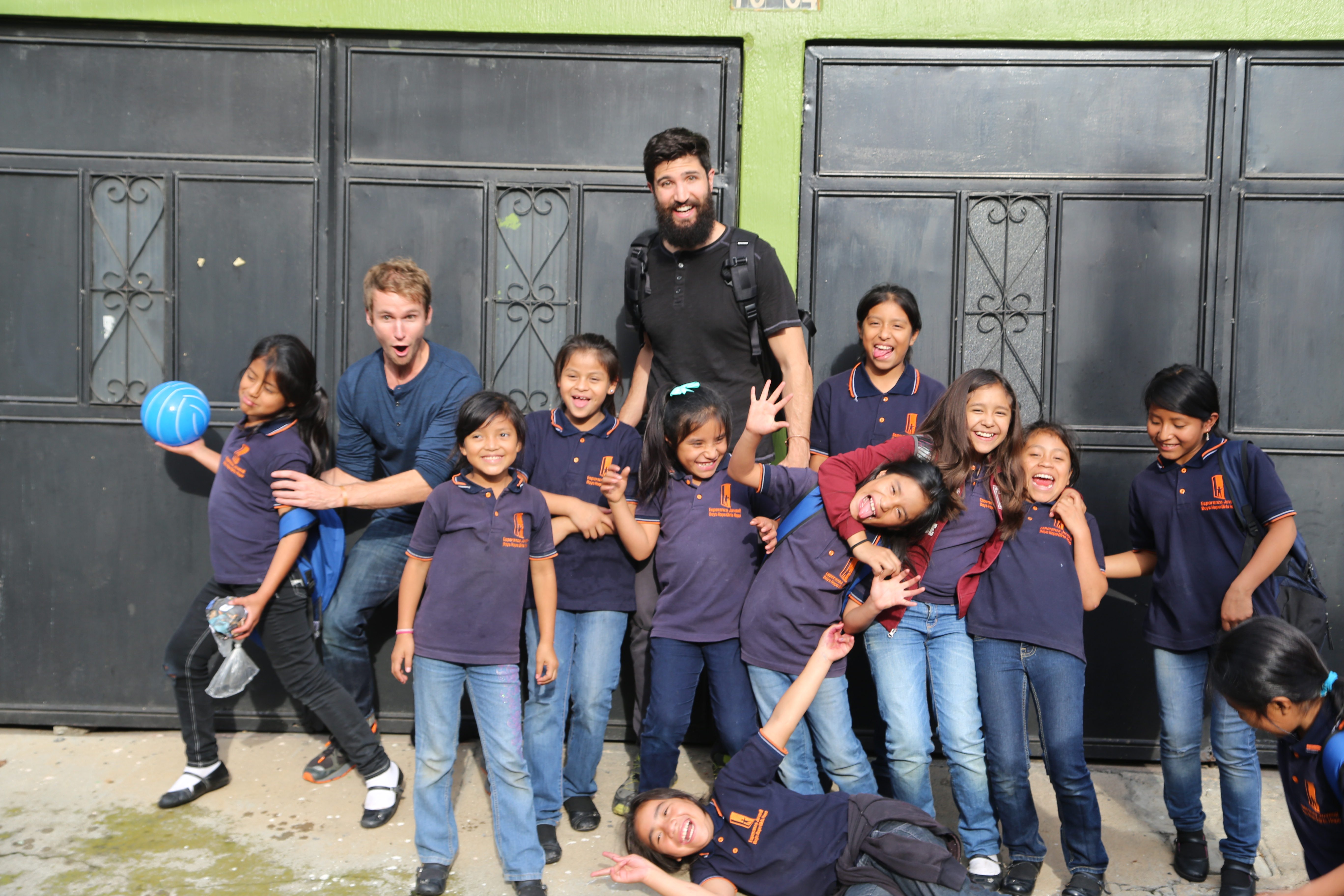Fast-forward eight years and the 28-year-old American with Sicilian heritage is an award-winning filmmaker, humanitarian and activist.
He is also co-founder of Living on One, a non-profit aimed at building a more equitable world through film.
Ingrasci and Living on One co-founder, Chris Temple, were recognised alongside Bill Gates and Angelina Jolie as among the top 100 visionary leaders of 2015 by YPO’s Real Leaders Magazine.
The two best friends – who met at Claremont McKenna College in California – have also collaborated with TEDx, the United Nations and the World Humanitarian Summit.
Despite never intending on becoming filmmakers, they are now celebrated as ground-breaking storytellers whose work evokes a sense of empowerment and hope, rather than apathy and guilt when it comes to solving the big issues.
It all began when they travelled to the small Guatemalan village of Peña Blanca with their friends Sean Leonard and Ryan Christofferson, for a research project during their second year of university.
They spent three months in the rural town farming radishes, getting to know the locals and learning what it’s like to be among the 1.1 billion people in the world who survive on a dollar a day.
What they didn’t expect was to end up starting Living on One and producing Living on One Dollar, a documentary which was featured on the homepage banner of Netflix and has raised almost US$1 million for microfinance and education in Peña Blanca.
“One of the most influential people I met while in Peña Blanca was a woman named Rosa,” Ingrasci said.
During filming, Rosa received a small US$200 loan from a microfinance bank, designed to meet the needs of the extreme poor.
That small loan helped her start a weaving business and funded her return to school to pursue her lifelong dream of becoming a nurse.
“Seeing how such a small change could have such a huge impact on someone’s life was inspiring and empowering for me,” Ingrasci explained.
“Rosa helped me shift how I define ‘poverty’; instead of thinking of poverty as just a lack of money, it’s actually more accurate to think of it as a lack of opportunity.”
Living on One has since funded new classrooms, infrastructure, microfinance loans and the town’s first ever preschool for 64 children, which opened its doors in March.
Hello Neighbour
Having helped change the fate of an entire community, Ingrasci and his team moved on to their next project, which took them to a place most wouldn’t dare venture to: Za’atari refugee camp.
With the aim of better understanding the reality facing millions of Syrian refugees, they became the first filmmakers ever to be given a tent and be registered inside a refugee camp.
For a month they lived like the 85,000 refugees in the camp, gaining an intimate insight into life as a refugee and getting to know the people who called Za’atari home.
Among those they met were Raouf, a 10-year-old-boy who was left traumatised after his school was bombed, and Um Anas, a woman who lost her second son back in Syria on the anniversary of her first son’s death.
The result was Salam Neighbor, a documentary which challenges the misconceptions regarding refugees and explores tangible solutions to the world’s biggest humanitarian crisis.
“Walking into the largest Syrian refugee camp in the world I was pretty scared,” Ingrasci recalled of his first day in Za’atari.
“How were Syrian refugees going to react to an American setting up a tent in the heart of their camp? But my nerves were unfounded and I was immediately welcomed and ended up with lifelong friends.”
He was affected most when asked by his new neighbours: “Do you see us as we see ourselves portrayed in the media? As violent? As terrorists?”
“It was a great reminder that my friends in the camp are listening to how we speak about them,” he said.
“When we allow ignorant rhetoric to dominate the conversation, real people are being hurt and alienated.”
The film’s success allowed Living on One to collaborate with the UN Refugee Agency and Google to create Searching for Syria, an immersive online hub that answers the world’s top searched questions about Syria.
The project was featured on the homepage of Google and reached over 5 million people in the first two weeks.
All in the name of changing lives
While Living on One’s award-winning films and social impact campaigns have fostered dialogue, prompted policy change and raised money for the communities where they were filmed, their creation was no easy feat.
Ingrasci listed battling illness and parasites in Guatemala as one of the many challenges which arose along the way.
Then there was the moment when it came time to leave after becoming immersed in a community and forming relationships with its members.
“We get to go home while our friends continue to survive in extraordinary circumstances,” Ingrasci said.
“It’s impossible to leave without some level of guilt…but of course the only cure to guilt is action. We get to channel that action into the films we make and the impact campaigns we design around them.”
The filmmaker claimed that the biggest challenge by far is picking which stories to share with the world.
“There are literally thousands of stories worth telling in both Guatemala and Za’atari refugee camp,” he said.
“That’s why my favourite part of our work is going back to film again and again.”
In fact, Living on One recently released a short film featuring Rosa, tracking her progress years after the team first met her in Peña Blanca.
While Ingrasci and his team continue to keep in touch with all of their friends around the world, the amount of lives they have changed – and continue to change – since that first trip to Guatemala is insurmountable.
And to think it all began with a handful of students who never imagined any of it in their wildest dreams.













